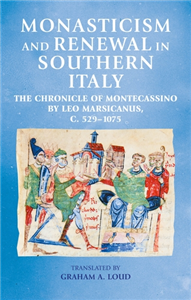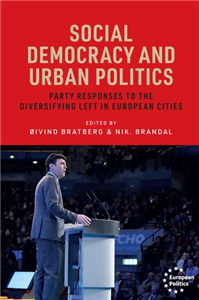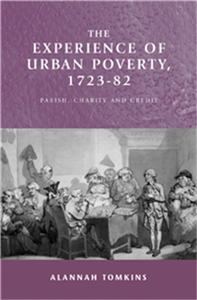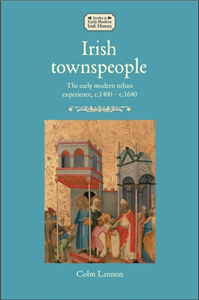Your Search Results
-
Promoted ContentThe ArtsSeptember 2024
The renewal of post-war Manchester
Planning, architecture and the state
by Richard Brook
A compelling account of the project to transform post-war Manchester, revealing the clash between utopian vision and compromised reality. Urban renewal in Britain was thrilling in its vision, yet partial and incomplete in its implementation. For the first time, this deep study of a renewal city reveals the complex networks of actors behind physical change and stagnation in post-war Britain. Using the nested scales of region, city and case-study sites, the book explores the relationships between Whitehall legislation, its interpretation by local government planning officers and the on-the-ground impact through urban architectural projects. Each chapter highlights the connections between policy goals, global narratives and the design and construction of cities. The Cold War, decolonialisation, rising consumerism and the oil crisis all feature in a richly illustrated account of architecture and planning in post-war Manchester.
-
Promoted ContentHumanities & Social SciencesOctober 2014
The search for democratic renewal
The politics of consultation in Britain and Australia
by Rob Manwaring
Why is the search for democratic renewal so elusive? This book examines both the political and policy implications of efforts by the centre-left to transform democracy. This is a story not only about democratic change, but also the identity crisis of centre-left political parties. The book offers a fresh critique of the Big Society agenda, and analyses why both left and right are searching for democratic renewal. Drawing on high-profile interviews and examining an in-depth series of comparative cases, the book argues that the centre-left's search for democratic renewal contains a range of policy and political aims, contradictions and tensions. It will be of interest to students, academics, researchers, interest groups and policy analysts interested in consultation, democratic renewal, labour politics, and Australian and British politics. ;
-
 Trusted Partner
Geography & the EnvironmentJune 2025
Trusted Partner
Geography & the EnvironmentJune 2025Demystifying informal urban design and planning
Insights from Asia
by Mahyar Arefi
Touting informal settlements or informality in general as illegal, crime-ridden, unsafe, filthy, chaotic, and formal developments as legal, orderly or safe, and so forth has not solved anything and informality as a way of life or an economic reality lingers and grows. Demystifying informal urban design and planning delves deeper into this conundrum and seeks to debunk some common misguided perceptions about it. Borrowing popular philosophical and political analogies from Isaiah Berlin and Gregory Treverton and others, it encourages urban designers and planners to become multitaskers like foxes rather than hedgehogs who can do one thing right. The book ends with some general takeaways on assuming more proactive roles in informal urban design issues and avoiding two potential pitfalls while interacting with them.
-
 Trusted Partner
Humanities & Social SciencesFebruary 2023
Trusted Partner
Humanities & Social SciencesFebruary 2023Globalized urban precarity in Berlin and Abidjan
Young men and the digital economy
by Hannah Schilling
Digital technologies promise efficiency and comfort, but the smoothness of platform services relies on the hidden social labour of those who keep the gig economy running. This book presents a comparative ethnography of young men making a living through digital technologies: selling mobile airtime in Abidjan, Côte d'Ivoire, and app-based delivery riders in Berlin, Germany. These case studies explore the significance of symbolic capital in urban youth's social existence and organisation of livelihood in the digital economy, and the technological mechanisms producing a new form of urban precarity. Globalized urban precarity in Berlin and Abidjan puts forward an original comparative approach to develop a global urban sociology for the digital era. It provides an innovative analytical toolbox that decentres discussions of precarity from the standard of a normal employment contract. With its focus on symbolic capital, the ethnography shows the consequences of the proliferating gig economy for status struggles among urban youth, and carefully embeds the densification of software and services into the socio-material relations on which these new urban infrastructures are built.
-
 Trusted Partner
Humanities & Social SciencesFebruary 2026
Trusted Partner
Humanities & Social SciencesFebruary 2026Monasticism and renewal in southern Italy
The Chronicle of Montecassino by Leo Marsicanus, c. 529–1075
by Graham Loud
The chronicle of Leo Marsicanus recounts the history of the abbey of Montecassino from its foundation by St. Benedict in the sixth-century up to 1075. It presents a detailed and compelling story of tribulation and renewal, with the abbey twice destroyed and abandoned in the early Middle Ages and then rebuilt. It concludes with an informative account of the building and dedication of the new abbey church by Abbot Desiderius in 1066-71. The chronicle is also a key source for the more general history of southern Italy in the early Middle Ages, and of the conquest of the region by the Normans during the eleventh century. In addition, Montecassino was one of the great intellectual centres of western Christendom and a major contributor to the reform movement within the Church during the later eleventh century. Leo's chronicle is a crucial witness to that role.
-
 Trusted Partner
Humanities & Social SciencesOctober 2025
Trusted Partner
Humanities & Social SciencesOctober 2025Social democracy and the urban scene
Party responses to the diversifying centre-left
by Nik. Brandal, Øivind Bratberg
Social democratic parties struggle to appeal to a divided electorate. Particularly prescient is the clash between working-class voters thatare socially conservative and middle-class voters who are liberally inclined but economicallyleft. Are politics and policies that appeal to both even a possibility? Nowhere is thatdebate more acute than in European cities, yet in no other political space are answers more likely to be found.Where urban voters turn left, they are increasingly attracted by radical and green alternatives to social democracy.Social democracy and urban politicsdelves into the changing relationship between these three party families on the urban scene. Mapping electoral geography, governing strategies and the interface between parties and social movements on the left, the authors reflect upon the formation and dilemmas of a broader progressive alliance.
-
 Trusted Partner
Humanities & Social SciencesAugust 2024
Trusted Partner
Humanities & Social SciencesAugust 2024The machinic city
Media, performance and participation
by Marcos P. Dias
As human and machine agency become increasingly intermingled and digital media is overlaid onto the urban landscape, The machinic city argues that performance art can help us to understand contemporary urban living. Dias analyses interventions from performance artists such as Blast Theory, Rafael Lozano-Hemmer and Rimini Protokoll, which draw from a rich history of avant-garde art movements to create spaces for deliberation and reflection on urban life, and speculation on its future. While cities are increasingly controlled by autonomous processes mediated by technical machines, Dias analyses the performative potential of the aesthetic machine, as it assembles with media, capitalist, human and urban machines. The aesthetic machine of performance art in urban space is examined through its different components - design, city and technology actants. This unveils the unpredictable nature and emerging potential of performance art as it unfolds in the machinic city.
-
 Trusted Partner
Geography & the EnvironmentJune 2026
Trusted Partner
Geography & the EnvironmentJune 2026Living the urban periphery
by Paula Meth, Sarah Charlton, Tom Goodfellow, Alison Todes
-
 Trusted Partner
Geography & the EnvironmentAugust 2020
Trusted Partner
Geography & the EnvironmentAugust 2020Urban transformations and public health in the emergent city
by Michael Keith, Andreza Aruska de Souza Santos, Susan Parnell
The imperatives of public health shaped our understanding of the cities of the global north in the first industrial revolutions of the nineteenth and twentieth centuries. They are doing so again today, reflecting new geographies of the urban age of the twenty-first. Emergent cities in parts of the globe experiencing most profound urban growth face major problems of economic, ecological and social sustainability when making sense of new health challenges and designing policy frameworks for public health infrastructures. The rapid evolution of complex 'systems of systems' in today's cities continually reconfigure the urban commons, reshaping how we understand urban public health, defining new problems and drawing on new data tools for analysis that work from the historical legacies and geographical variations that structure public health systems.
-
 Trusted Partner
Trusted Partner
-
 Trusted Partner
Humanities & Social SciencesOctober 2006
Trusted Partner
Humanities & Social SciencesOctober 2006The experience of urban poverty, 1723–82
Parish, charity and credit
by Alannah Tomkins
This comparative study of urban poverty is the first to chart the irregular pulse of poverty's encounters with officialdom. It exploits an unusual methodology to secure new perspectives from familiar sources. The highly localised characteristics of the welfare economy generated a peculiarly urban environment for the poor. Separate chapters examine the parameters of workhouse life when the preconceptions of contemporaries have been stripped away; the reach of institutional charities such as almshouses, schools and infirmaries; and the surprisingly broad clientele of urban pawnbrokers. Detailed analysis of the poor is achieved via meticulous matching of individuals who fell within the purview of two or more authorities. The result is a unique insight into the survival economics of urban poverty, arising not from a tidy network of welfare but from a loose assembly of options, where the impoverished positioned themselves repeatedly to fit official, philanthropic, or casual templates of the 'deserving'. This book will be essential reading for historians of English poverty and welfare, and eighteenth-century social and economic life. ;
-
 Trusted Partner
The ArtsJanuary 2026
Trusted Partner
The ArtsJanuary 2026David Simon's American City
by Mikkel Jensen
This book examines the television serials created by influential showrunner David Simon. The book argues that Simon's main theme is the state of the contemporary American city and that all of his serials (barring one about the Iraq War) explore different facets of the metropolis. Each series offers distinctly different visions of the American city, but taken together they represent a sustained and intricate exploration of urban problems in modern America. From deindustrialisation in The Wire and residential segregation in Show Me a Hero to post-Katrina New Orleans in Treme and the transformation of the urban core in The Deuce, David Simon's American city traces the urban through-line in Simon's body of work. Based on sustained analysis of these serials and their engagement with contemporary politics and culture, David Simon's American city offers a compelling examination of one of television's most arresting voices.
-
 Trusted Partner
Geography & the EnvironmentMarch 2021
Trusted Partner
Geography & the EnvironmentMarch 2021Sanctuary cities and urban struggles
by Jonathan Darling, Harald Bauder
-
 Trusted Partner
Humanities & Social SciencesMarch 2021
Trusted Partner
Humanities & Social SciencesMarch 2021African cities and collaborative futures
Urban platforms and metropolitan logistics
by Michael Keith, Andreza Aruska de Souza Santos, Susan Parnell
This groundbreaking volume brings together scholars from across the globe to discuss the infrastructure, energy, housing, safety and sustainability of African cities, as seen through local narratives of residents. Drawing on a variety of fields and extensive first-hand research, the contributions offer a fresh perspective on some of the most pressing issues confronting urban Africa in the twenty-first century. At a time when the future of the region as a whole will be determined in large part by its cities, the implications of these developments are profound. With case studies from cities in Ethiopia, Kenya, Malawi, Niger, Nigeria, South Africa and Tanzania, this volume explores how the rapid growth of African cities is reconfiguring the relationship between urban social life and its built forms. While the most visible transformations in cities today can be seen as infrastructural, these manifestations are cultural as well as material, reflecting the different ways in which the city is rationalised, economised and governed. How can we 'see like a city' in twenty-first-century Africa, understanding the urban present to shape its future? This is the central question posed throughout this volume, with a practical focus on how academics, local decision makers and international practitioners can collaborate to meet the challenge of rapid growth, environmental pressures and resource gaps.
-
 Trusted Partner
Trusted Partner
-
 Trusted Partner
Humanities & Social SciencesJanuary 2026
Trusted Partner
Humanities & Social SciencesJanuary 2026The spatiality and temporality of urban violence
by Mara Albrecht, Alke Jenss
-
 Trusted Partner
Humanities & Social SciencesMay 2026
Trusted Partner
Humanities & Social SciencesMay 2026Irish townspeople
The early modern urban experience, c.1400–c.1640
by Colm Lennon
Through a series of innovative perspectives, this book examines how early modern Irish townspeople experienced the urban world through a range of family and associational ties. Migrants inducted through town citizenship and marriage bonded more closely as sisters or brothers of confraternities and guilds, consolidating parish membership. Civic religion saw the integration of religion with town politics and councils, and monastic charity of the friars' hospitals preceded the era of modern municipal welfare. In circumstances of the alienation of the long-settled Catholic townspeople from the state's religious and political Reformation in the seventeenth century, they drew sustenance from the continuity of institutions such as colleges, fraternities and hospitals and forms of coexistence with Protestant fellow-citizens.
-
 Trusted Partner
Trusted Partner
-
 Trusted Partner
Geography & the EnvironmentJune 2026
Trusted Partner
Geography & the EnvironmentJune 2026Gendered urban violence among Brazilians
by Cathy McIlwaine, Paul Heritage, Miriam Krenzinger Azambuja, Moniza Rizzini Ansari, Eliana Sousa Silva, Yara Evans
-
 Trusted Partner
Socialism & left-of-centre democratic ideologiesDecember 2014
Trusted Partner
Socialism & left-of-centre democratic ideologiesDecember 2014The search for democratic renewal
by Rob Manwaring




















